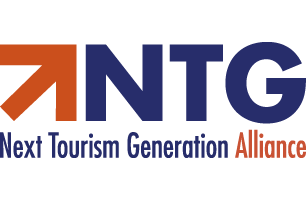Tourism Transition Pathway: three words full of meaning
On 10 March 2020, the Commission adopted a new industrial strategy. New compared to what? Why new? The aim was to help EU industry lead the green and digital transformations and to boost the EU’s global competitiveness and open strategic autonomy. In light of the experience of the COVID-19 pandemic, the update of the EU industrial strategy highlighted the need to further accelerate the green and digital transitions and increase the resilience of the EU industrial ecosystems.
The transformation of the tourism ecosystem
To do so, the Commission proposed launching transition pathways that are co-created with stakeholders, as a collaborative process to help the transformation of industrial ecosystems. As the tourism ecosystem was the hardest hit by the pandemic and faces major challenges to achieve the twin transition, it was the first industrial ecosystem in which a co-creation process was launched to develop a transition pathway.
Several meetings were also organised with EU Member states experts, EU institutions, Commission policy services and the Industrial forum, to ensure that the transition pathway covered all relevant concerns and linkages with different policy areas. The objective was to be as open and inclusive as possible, and provide a comprehensive picture of tourism and its linkages, which need to be considered for the twin transition and improving resilience.
Transition pathway policy report
The resultingtourism transition pathway policy report于2022年出版,总结关键aspects of these discussions and formulates 70 concrete actions under 27 key topic areas. Moreover it gives an overview of these topics under five key groups: Policy and regulation, Green transition, Digital transition, Skills and resilience, and Stakeholder support. Sharing the EC’s goal of accelerating the twin transition in the EU economy,Federturismo (as one of Pantours partners)accepted to be a lively protagonist of the process and participated from the beginning in the TTP. It provided support to both phases of the process:
- to the first (that of co-creation) by attending the consultation workshops of key European tourism stakeholders
- 第二(co-implementation的)部分cipating in the survey to collect concrete pledges and commitments and in Commission Expert Group ‘Together for EU Tourism – T4T.
The 27 action points
With reference to the 27 topics of the Transition Pathway for Tourism, Federturismo pledged to commit mainly in 3 of them:
- Topic 16: Support for digitalisation of tourism SMEs and destinations
- Topic 19: Awareness raising on skills needs for twin transition in tourism
- Topic 22: Pact for Skills in tourism.
The federation addressed these three topics for which it can really offer a tangible contribution. Regarding the support for digitalisation of tourism SMEs and destinations, Federturismo is the coordinating partner of the TOURISM4.0 project (co-funded by the COSME programme) that aims at enabling European tourism SMEs to adopt and leverage emerging digital technologies its concrete pledge is to assist by the end of 2023, with the financial resources made available through the project, at least 100 tourism SMEs and digital providers.
The need for awareness on skills needs
Regarding the awareness raising on skills needs for twin transition, Federturismo Confindustria has been for 4,5 years the leading partner ofNTG project,in charge of developing the Blueprint for sectoral cooperation on skills currently is one of the 13 partners of PANTOUR project, continuing to work on bridging skills gaps its concrete pledge is to promote awareness of transition needs and sharing of best practices among its members, involving them in an active knowledge exchange at least 3 times a year until 2025.
Finally, regarding thePact for Skills, Federturismo Confindustria with other NTG partners actively supported EC in the launch and implementation of the PfST, collaborating on the involvement of key European tourism stakeholders, working on the KPIs and carrying out a Skills Intelligence action its concrete pledge is to support the NRSPs set up in 6 countries under the NTG project and the establishment of new ones in at least 4 additional countries (Finland, Greece, Portugal, Germany).
According toEurostat in 2022, the share of the EU population confident in the European Institutions remained steady compared with 2021 at 50% and rose above the 47% registered in 2017.
Through tangible evidence of EU aid, perhaps the share could increase.


No Comments